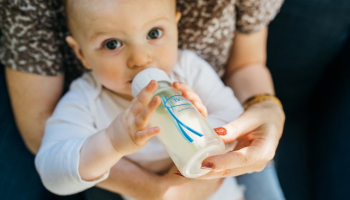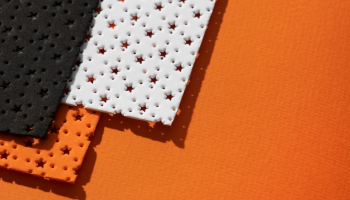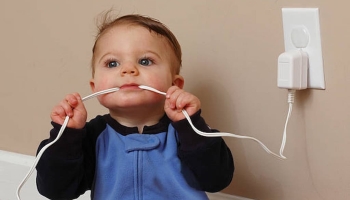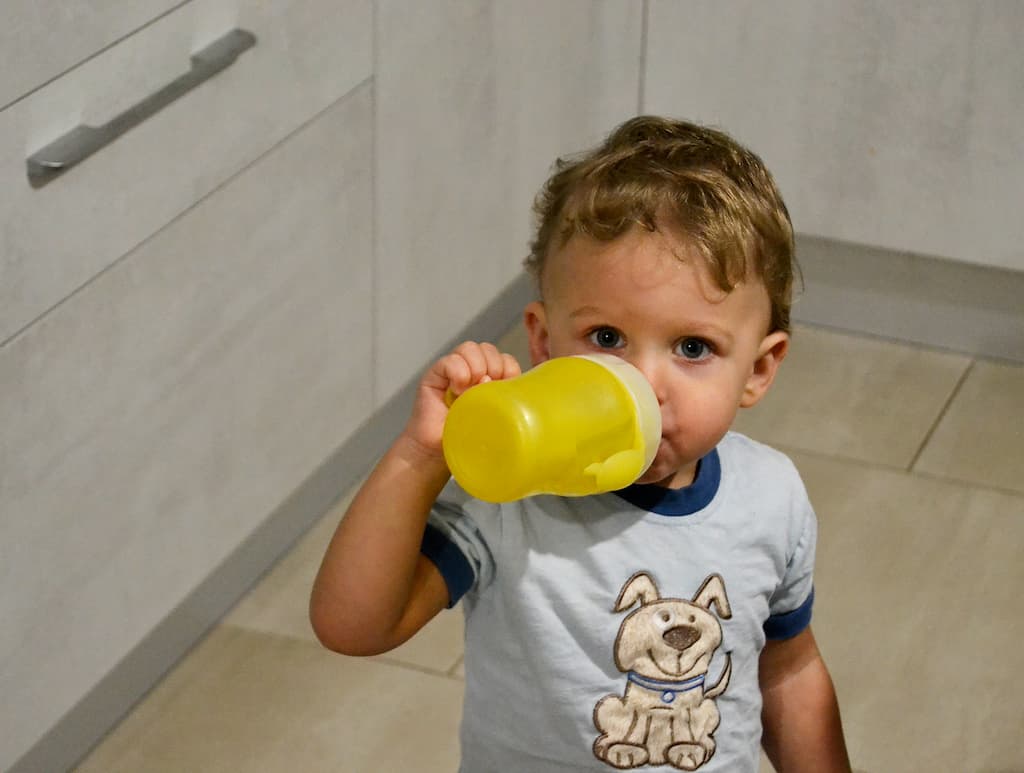
When it comes to the oral health of your child, choosing the right sippy cup is crucial. The importance of this choice lies in its impact on preventing tooth decay and promoting proper oral and jaw development. Unlike bottles, which can lead to prolonged sucking and tooth decay, well-designed sippy cups minimize liquid contact with the teeth, encourage proper swallowing patterns, and ensure correct tongue positioning, critical for speech development and preventing orthodontic problems.
Among the myriad of options, we recommend the Munchkin Miracle 360 Sippy Cup as the standout choice. It’s specifically designed to support dental health while easing the transition from bottle to cup. In the following sections, we’ll explore various top-rated products, key factors to consider in your selection, expert dental recommendations, and conclude with the overarching importance of selecting the ideal sippy cup for your child’s dental health and development.
Key Takeaways
- The ideal sippy cup should encourage a natural sucking motion, which is crucial for healthy oral development.
- Select cups that promote a natural sucking action instead of biting or chewing, to avoid negative impacts on oral growth.
- Opt for cups made from safe, non-toxic materials and with ergonomic features like handles for easier handling by children.
Top 6 Sippy Cups for Oral Development
Best Sippy Cups for Oral Development
As parents, we all want to ensure that our little ones are developing properly and reaching their milestones. One important aspect of development is oral motor skills, which can be improved through the use of sippy cups. Not only do they help transition babies from bottles to cups, but they also promote proper tongue and jaw movement.
After researching and testing various sippy cups on the market, we have compiled a list of the best sippy cups for oral development. These cups are not only beneficial for your child’s development, but they are also durable, leak-proof, and easy to clean. Read on to find the perfect sippy cup for your little one.
This cup is designed with both parents and kids in mind, aiming to eliminate messes while supporting kids’ dental health. It allows drinking from anywhere around the rim, like a regular cup, which supports normal muscle development in a child’s mouth.
Pros
- Supports normal muscle development in the mouth.
- Eliminates messes effectively.
- Drinkable from any part of the rim.
Cons
- No specific cons noted from the provided information.
We found this cup’s innovative design, which allows toddlers to drink from all sides, effectively simulates drinking from a regular glass. The curved handles are comfortably grippable for small hands. While it’s easy to clean and spill-proof, we did notice that some toddlers might find it a bit heavy or challenging to drink from at first.
This 360-degree sippy cup allows babies to drink from any edge. It features a Sip and See clear silicone valve for leak-free learning and a simple three-piece design that makes assembly and cleaning easy.
Pros
- Drinkable from any edge.
- Leak-free learning with a clear silicone valve.
- Easy to assemble and clean.
Cons
- No specific cons noted from the provided information.
In our testing, this cup proved easy for babies to hold and tip, thanks to its three-part design which also made cleaning a breeze. We were impressed by its durability, standing up well to numerous drops.
This cup has a no-spill flexible soft silicone straw designed to be delicate on teeth and gums. Liquid only passes through the straw when the child sips, and the straw’s design encourages the child to hold the cup upright, aiding the transition to straw drinking.
Pros
- No-spill design.
- Gentle on teeth and gums.
- Encourages upright holding and straw drinking.
Cons
- Requires sipping action to release liquid, which might be challenging for some younger children.
Our experience with these cups was positive in terms of their no-spill design. However, we observed that younger children might find it somewhat difficult to extract the drink through the straw, indicating a potential learning curve in its usage.
This weighted straw trainer cup allows toddlers to hold it like a bottle but drink from a straw. It dispenses liquid from any angle and features a flip top lid and Click Lock functionality, making it suitable for on-the-go use.
Pros
- Weighted straw for drinking from any angle.
- Secure with Click Lock functionality.
- Good for on-the-go use.
Cons
- Some children might find the weighted straw mechanism difficult to use initially.
This cup quickly became a favorite in our tests, particularly for its convenience and practicality. The weighted straw feature is a standout, making it a go-to choice for busy parents seeking a reliable sippy cup.
The Wow Cup Baby TRITAN Training Cup is designed for an optimal transition sippy cup experience. This trendy, colorful cup comes in four vibrant translucent colors, featuring ergonomic handles and a grip-friendly design. It is made from durable, BPA & Phthalate Free TRITAN material.
Pros
- Spill-free design reduces messy clean-ups.
- Supports oral and motor coordination development.
- Interchangeable parts with the Wow Cup for Kids.
- Dentist-recommended spoutless design.
- Dishwasher safe for easy maintenance.
Cons
- May develop leakage issues over time.
- Some children may require time to learn how to use it effectively
We were pleasantly surprised by this cup, which became a top pick after initial use. Its spill-free design is a significant improvement over some other models, such as the Munchkin 360° cups, which we found prone to occasional spills.
This Learner Cup features a spill-proof soft spout gentle on teeth and gums. It includes an air vent to reduce swallowed air and comes with easy-to-grip, removable handles. It’s BPA-free and dishwasher safe, recommended for ages 6 months and older.
Pros
- Gentle, spill-proof soft spout.
- Air vent to reduce swallowed air.
- Removable, easy-to-grip handles.
Cons
- May be too basic for older toddlers transitioning to regular cups.
We found the NUK Learner Cup to be particularly useful for babies around 10 months old, especially those still learning to hold their own bottles and cups. The handles are quite handy, and its compact size, coupled with an appealing design, makes it a great choice.
The Significance of Choosing the Right Sippy Cup
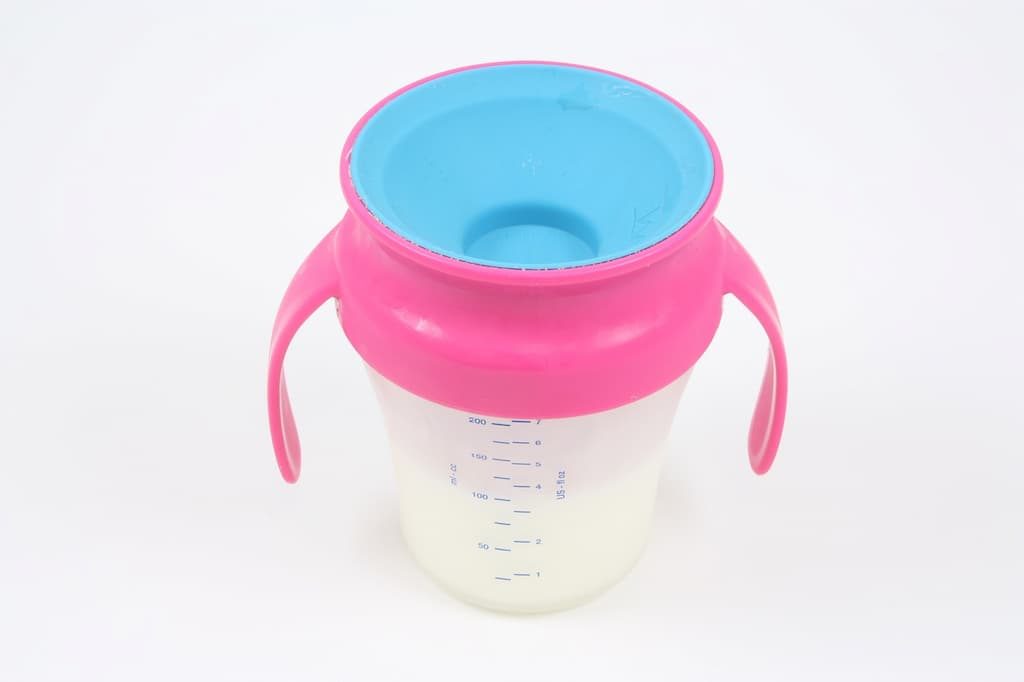
Ensuring healthy oral development in our children starts with something as simple yet vital as selecting the appropriate sippy cup. The impact of a well-chosen sippy cup goes beyond just convenience; it plays a crucial role in promoting proper oral growth, while an ill-suited one can lead to adverse effects.
The design and usage of a sippy cup significantly influence a child’s oral development. For example, a sippy cup with a hard spout may cause children to develop an improper tongue position, pushing it forward and potentially leading to speech difficulties and dental issues later on.
In contrast, sippy cups designed with a soft silicone spout encourage correct tongue placement, aiding in proper oral development. Features like handles not only facilitate ease of use but also contribute to the development of fine motor skills in children.
The material of the sippy cup is another essential consideration. Plastic cups, especially those containing BPA and other harmful chemicals, can pose health risks. Opting for a sippy cup made from safe, non-toxic materials is not just a choice for convenience, but a decision towards ensuring our children’s health and proper oral development.
In essence, the thoughtful selection of a sippy cup – one with a soft silicone spout, ergonomic handles, and made from safe materials – is a step towards nurturing our children’s healthy teeth, speech clarity, and overall oral functionality.
Buying Guide for the Best Sippy Cups for Oral Development
Selecting the right sippy cup is a crucial step in transitioning your child from baby bottles to independent drinking. While exploring options, it’s essential to consider various factors that not only ensure convenience but also safeguard your child’s oral health. The best sippy cup for teeth should be effective in preventing tooth decay, safe for your baby’s teeth, and promote overall dental health. Here are key considerations:
Material
The material of the sippy cup is crucial for both safety and oral health. Look for cups free of harmful chemicals like BPA free plastic, phthalates, and PVC. Glass or open cups, while eco-friendly, can break easily and pose safety risks. Instead, opt for durable materials like silicone or stainless steel. These materials are not only safer but also easier to clean and more durable for active toddlers.
Spout
The spout’s design is vital for your child’s oral development. Soft silicone spouts are preferable as they are gentle on gums and emerging teeth. Hard spouts can potentially cause dental issues, so they’re best avoided. Additionally, consider spouts that mimic natural drinking motions, as these encourage proper oral muscle development. Make sure the spouts are easy to clean and replace as hygiene is key in preventing oral health issues.
Size and Shape
Choose a sippy cup that is well-suited to your child’s age and developmental stage. The cup should be easy to hold, with ergonomically designed handles for smaller hands. The mouthpiece should fit comfortably in your child’s mouth. Cups that are too large or small can impede proper drinking techniques and affect oral development.
Leak-Proof Design
A leak-proof cup is essential for minimizing spills and messes. Options with spill-proof valves or straws are excellent as they allow your child to drink independently without the risk of spills. Regular cleaning of these components is critical to prevent mold and bacteria buildup, ensuring your child’s health and safety.
Dental Professional Recommendations and Tips

When it comes to your child’s development and health, especially their dental health, advice from dental professionals is invaluable. Following their recommendations can help prevent tooth decay and ensure the overall well-being of your child. Here are some key tips and insights from dental professionals:
Start with the Right Cup: Dental professionals often recommend transitioning to open cups or sippy cups with straws as soon as possible. This transition is crucial for the development of the muscles in the mouth and can help in preventing tooth decay, often caused by prolonged exposure to liquids in traditional sippy cups.
Avoid Sugary Drinks: To safeguard your baby’s teeth, it’s essential to limit or avoid sugary beverages, including fruit juices, in sippy cups. Sugary drinks can greatly increase the risk of tooth decay. Offering water or milk instead is a healthier choice for your child’s teeth.
Encourage Regular Sipping: Allowing your child to sip on liquids throughout the day can lead to constant exposure of their teeth to sugars and acids, increasing the risk of tooth decay. Dental professionals recommend setting specific times for drinking, especially for sweetened drinks.
Prioritize Cup Cleaning: Proper hygiene is crucial. Dental experts advise thoroughly cleaning the sippy cup, including all its components, to prevent the buildup of bacteria and mold, which can harm your baby’s teeth and overall health.
Monitor Cup Use: Continuous use of a sippy cup throughout the day can hinder a child’s teeth development. Dentists suggest limited and mindful use of sippy cups to promote healthier eating and drinking habits.
Regular Dental Checkups: Regular visits to a pediatric dentist are important for monitoring your child’s oral development. A dentist can provide personalized advice based on the specific needs of your child’s teeth and overall oral health.
Educate on Proper Use: Teach your child how to use the sippy cup correctly. For instance, instruct them not to bite on the spout or straw, as this can affect their dental development and the integrity of the cup.
Transition Timing: Dental professionals emphasize the importance of not delaying the transition from a sippy cup to a regular cup. This transition is a natural progression in a child’s development and helps in promoting normal dental development.
By following these dental professional recommendations and tips, you can play a crucial role in preventing tooth decay and ensuring the healthy development of your child’s teeth. Remember, the choices you make regarding your child’s sippy cup can have a lasting impact on their dental health and overall development.
Conclusion
Choosing the best sippy cup for your child’s oral development is a balance of safety, functionality, and ease of use. By focusing on safe materials, child-friendly spout designs, appropriate sizing, and leak-proof features, you can ensure a positive and healthy drinking experience for your child. Remember, the right sippy cup not only minimizes spills but also supports your child’s dental health and overall development, making this choice an integral part of their growth journey.
Frequently Asked Questions
Why is choosing the right sippy cup important for my toddler?
Choosing the right sippy cup for your toddler is important for their oral development. Sippy cups that are poorly designed can cause harm to your child’s teeth and may interfere with their speech development. The right sippy cup can help your child learn to drink from a cup and can help them transition from a bottle.
When should I introduce a sippy cup to my child?
You can start introducing a sippy cup to your child when they are around 6 months old. This is typically when they start to sit up on their own and can hold the cup with both hands. However, it is important to note that every child is different and may be ready for a sippy cup at a different age.
What type of sippy cup is best for teeth?
The best type of sippy cup for teeth is one that is spill-proof and has a soft spout. Spill-proof cups prevent your child from constantly sipping on sugary drinks, which can lead to tooth decay. Soft spouts are also important because they are gentle on your child’s developing teeth and gums. It is also important to avoid sippy cups with valves, as they require your child to suck harder, which can cause problems with their oral development.
Are sippy cups bad for teeth?
Sippy cups, when used excessively or incorrectly, can potentially be bad for teeth. Traditional sippy cups with spouts that allow continuous sipping of sugary beverages can increase the risk of tooth decay. However, using sippy cups with features like straws or open cups, limiting sugary drinks, and practicing good oral hygiene can help mitigate these risks.
What baby cups do dentists recommend?
Dentists often recommend transitioning from bottles to open cups or sippy cups with straws at an appropriate age. These cups promote the development of mouth muscles and reduce the risk of tooth decay associated with prolonged sippy cup use. It’s essential to consult with a dentist for personalized recommendations based on your child’s needs.
Do pediatricians recommend sippy cups?
Pediatricians may offer guidance on sippy cup use as part of their overall recommendations for infant and child care. However, their recommendations may vary, and they often emphasize the importance of using sippy cups in moderation and choosing options that are appropriate for a child’s age and developmental stage. Consulting with a pediatrician can provide specific advice tailored to your child’s needs.
Last update on 2024-10-22 / Affiliate links / Images from Amazon Product Advertising API









